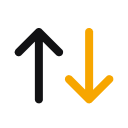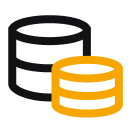Imagine a world where blockchain smart contracts can access and utilize real-world data, vastly expanding their applications and capabilities. This is precisely the problem that Chainlink, a decentralized oracle network, aims to solve. Get ready to learn about Chainlink’s unique approach to bridging blockchain and the real world, unlocking the true potential of smart contracts. But first, let’s answer the question: what is Chainlink?
Key Takeaways
- Chainlink is a decentralized oracle network that provides a bridge between blockchain-based smart contracts and the real world.
- LINK tokens are an essential part of Chainlink, playing vital roles in staking, payments, incentives and ensuring accuracy of data services.
- Participation in the Chainlink Network brings rewards for node operators as well as developers & users who can access secure offchain resources to enhance their smart contracts.
What is Chainlink?
While smart contracts have profoundly transformed the blockchain scene, their inability to access off-chain data remains a significant drawback, limiting their potential in our data-driven world. Enter Chainlink, a decentralized oracle network that connects real-world data to blockchain-based smart contracts, augmenting their functionalities and dependability. The Chainlink Oracle Network ensures the data provided is accurate, serving as a vital bridge that provides smart contracts with the necessary information.
Oracles are external data providers that enable Chainlink smart contracts to access all the data from external sources, such as APIs and other types of external data feeds. The Chainlink Oracle Network is comprised of various decentralized oracle networks, each consisting of multiple blockchain oracles responsible for retrieving and validating data.
The Role of Chainlink Nodes
Playing a key role in the decentralized oracle network, Chainlink nodes gather, verify, and harmonize data from various sources, thereby guaranteeing reliable information for smart contracts. These nodes ensure the accuracy and reliability of the data they collect through the following methods:
- Aggregation: Chainlink nodes collect data from multiple sources to ensure a comprehensive dataset.
- Consensus: The collected data is verified through consensus among the nodes, ensuring that only accurate information is used.
- Processing: The verified data is processed and made available for the client’s use in smart contracts.
By utilizing these methods, Chainlink nodes maintain the integrity of the data and provide reliable information for smart contract execution.
The nodes retrieve and validate data from various sources, including APIs, web services, and IoT devices, through a comprehensive verification process. They employ a variety of techniques such as data source aggregation, node operator aggregation, and oracle network aggregation to reconcile data, ensuring its accuracy and reliability.
The Importance of LINK Tokens
LINK tokens, which serve various functions like staking, payments, and incentives, are an integral part of the Chainlink network. Node operators can stake LINK tokens to bid on data requests from contracts, and payouts are made in LINK tokens, incentivizing the accumulation of LINKs. Requesting Contract holders pay Chainlink node operators for their services using LINK tokens, creating a circular economy within the network.
The value and demand for LINK tokens are largely dependent on the number of operators that secure the network. As the platform is utilized for more use cases, such as connecting smart contracts to real-world data and external APIs, the value of the LINK token will increase. LINK tokens play a vital role in financing and guaranteeing the precision of the oracle service on the Chainlink network.
How Chainlink Ensures Trustworthy Data
Chainlink implements a reputation system and aggregation contracts to evaluate the trustworthiness of data sources and provide dependable information to smart contracts. An oracle’s reputation is impacted by metrics such as:
- Total assigned requests
- Completed requests
- Accepted requests
- Average response time
- Penalty payments
The Chainlink Reputation Contract verifies an oracle provider’s authenticity and performance history, discarding any disreputable or unreliable nodes.
The Chainlink Aggregating Contract:
- Validates data from single and multiple sources
- Reconciles the validated data by averaging it into a single piece of data
- Ensures that the data provided to smart contracts is accurate and reliable
- Overcomes the limitations of blockchain smart contracts
- Provides a secure connection to real-world data
The Architecture of Chainlink: Securely Connecting Data Providers and Smart Contracts
Chainlink’s architecture, which includes Service Level Agreements (SLAs), off-chain data providers, and on-chain smart contracts, establishes a secure connection between data providers and smart contracts. Chainlink nodes employ the use of “Chainlink Core” software to translate requests from on-blockchain programming languages to off-blockchain programming languages that are compatible with real-world data sources.
External adapters in Chainlink facilitate interaction with third-party API endpoints, connecting blockchain technology to real-world applications. The OCR protocol enables nodes to compile their observations into a single report outside of the chain. A single node transmits a transaction containing the consolidated report to the chain. This transaction has to be endorsed by a quorum of nodes. This architecture allows secure access to real-world data for smart contracts, enhancing their capabilities and reliability.
Service Level Agreement (SLA) in Action
Service Level Agreements (SLAs) are instrumental in delineating the data needs and conditions for Chainlink users, aligning them with suitable oracles and data providers. An SLA outlines the data requirements and conditions for users, connecting them with suitable oracles and data providers. The SLA is enforced through a combination of sub-contracts, including a reputation contract, an order-matching contract, and an aggregating contract.
The order-matching contract logs the SLA parameters and collects bids from oracle providers, while the aggregating contract combines the responses from multiple oracles to generate a reliable and accurate result. This architecture ensures that the agreed-upon service levels are met, providing Chainlink users with accurate and reliable data.
The Chainlink Core Software
The Chainlink Core software facilitates the following:
- Translation of on-chain requests to off-chain language
- Routing of requests to external APIs
- Gathering and verifying data from off-chain sources
- Translation of off-chain data into a format that can be read on-chain
- Enabling the connection between the blockchain and off-chain data resources
- Allowing for contract communication
This software plays a crucial role in bridging the gap between the blockchain and external data sources, ensuring the seamless integration of off-chain data into smart contracts.
The Chainlink Core software routes requests to external APIs through the use of external adapters, which act as the interface between the Chainlink node and the external data source. These adapters provide the necessary information for the node to request and receive data from the external API, ensuring the secure and reliable provision of data to smart contracts.
Participation in the Chainlink Network
The Chainlink network thrives on the contributions from its participants, encompassing node operators, developers, and users, each of whom holds a key role in the ecosystem. Node operators are responsible for the correct configuration, upkeep, and surveillance of nodes, storing and managing LINK cryptocurrency, deploying and managing Oracle contracts, fulfilling job requests, and participating in various oracle networks to gather external data. Developers drive growth and innovation in the Chainlink ecosystem through the development and integration of decentralized oracle solutions into various applications, as well as collaborating with other operational teams.
Users of the Chainlink network benefit from its decentralized oracle services, which enhance the capabilities and reliability of their smart contracts by connecting them to real-world data. By participating in the Chainlink network, all parties contribute to the growth and success of this innovative decentralized oracle solution.
Becoming a Chainlink Node Operator
Chainlink node operators play a pivotal role in providing data services, staking LINK tokens, and maintaining the network’s integrity and security. They specialize in the oracle services they provide and can offer their data to the Chainlink Network or run a Chainlink Node to facilitate the sale of their APIs and data to any blockchain. Node operators may also be required to deposit a certain amount of LINK tokens to offer their services and ensure the integrity of their operations.
The success of a Chainlink node operator depends on their ability to supply precise and dependable data to users and smart contract developers. The reputation score is based on the node’s performance and its history of delivering data effectively, as well as performance parameters such as average response time and response ratio. By providing accurate data, node operators help enhance the overall functionality and security of the Chainlink network.
Utilizing Chainlink as a Developer or User
Developers and users can greatly benefit from Chainlink’s oracle services to enhance their blockchain applications and smart contracts. Chainlink securely and reliably connects DeFi applications to off-chain resources, enabling smart contracts on any blockchain to access the input and output necessary to replicate a full contract life cycle.
Integration with Chainlink allows developers to:
- Unlock the full capabilities of decentralized applications
- Enable smooth communication between blockchain networks
- Access accurate and reliable data
- Ensure users can trust the data inputs their smart contracts depend on
This further solidifies Chainlink’s position as an essential component of the broader crypto ecosystem.
The Economics of Chainlink: Staking, Payments, and Incentives
Chainlink’s economy is built around three key components:
- Staking: Validator nodes act as blockchain oracles, facilitating interactions between smart contracts and external sources, and are rewarded with LINK tokens for their services.
- Payments: LINK tokens are used as a means of payment within the Chainlink network.
- Incentives: Validator nodes are incentivized to participate in the network by receiving LINK tokens for staking and fulfilling data requests.
These components work together to ensure network security and foster participation in the Chainlink ecosystem. Currently, only validator nodes are eligible to receive LINK tokens for their contributions to the network.
Chainlink’s payment system involves users paying node operators in LINK tokens for their services, creating a circular economy within the network. This aligns economic incentives and motivates node operators to execute verifiably honest and high-quality work, strengthening the overall security and functionality of the Chainlink network.
Earning Opportunities for Chainlink Node Operators
Node operators can earn LINK tokens by providing reliable data services and building a positive reputation within the network. The success of a Chainlink node operator is determined by their capacity to supply precise and dependable data to users and smart contract developers, as well as their performance history and parameters.
By ensuring accurate data provision, node operators play a critical role in enhancing the overall functionality and security of the Chainlink network. Earning LINK tokens as rewards for their services incentivizes node operators to maintain their performance and support the Chainlink ecosystem.
Payment Systems Within Chainlink
Chainlink’s payment system plays a crucial role in its economy, with users remunerating node operators in LINK tokens for their services. Each service request necessitates the payment of a fee in LINK tokens, ensuring that node operators are compensated for their efforts.
This payment system establishes a circular economy within the network, with LINK tokens acting as the primary currency for remuneration and fees. As more users and smart contracts utilize the Chainlink network, the demand for LINK tokens increases, further supporting the growth and stability of the network in the long run.
Chainlink in the Broader Crypto Ecosystem
Chainlink holds a considerable position in the larger crypto ecosystem, as it integrates with other blockchain networks and influences the DeFi space. By providing a secure and decentralized oracle network, Chainlink allows developers to access real-world data and external APIs in their smart contracts on different blockchain platforms, enhancing the functionality and security of the DeFi ecosystem.
Chainlink’s chainlink decentralized oracle network has become a vital component in the DeFi ecosystem, providing accurate and reliable data for various platforms, supporting the growth of the DeFi movement, and positioning itself as a key player in the future of decentralized finance.
Chainlink's Integration with Other Blockchain Networks
Chainlink’s oracle services are used by various blockchain networks, enhancing their capabilities and enabling cross-chain interoperability. Chainlink has been integrated with:
- Ethereum
- Solana
- Binance Smart Chain
- Polygon
- Various Ethereum Layer 2 solutions such as Arbitrum and Optimism
- Swift, the global financial messaging network, through Chainlink’s Cross-Chain Interoperability Protocol (CCIP).
By providing a decentralized oracle network, Chainlink enables smooth communication between blockchain networks through its decentralized network, increasing the overall potential and reach of blockchain technology. This integration with multiple networks showcases Chainlink’s versatility and adaptability, further cementing its importance in the broader crypto ecosystem.
Chainlink's Impact on Decentralized Finance (DeFi)
Chainlink’s decentralized oracle network has become a vital component in the DeFi ecosystem, providing accurate and reliable data for various platforms such as:
- GMX
- MakerDAO
- Linea
- KyberDAO
- AAVE
- Synthetix
By enabling smart contracts to access external data, Chainlink enhances the functionality and security of the DeFi ecosystem, allowing for innovative applications and use cases.
As the DeFi space continues to grow, Chainlink’s role as a trusted provider of oracle services will become increasingly important. Its ability to securely connect smart contracts to real-world data sources will further drive the adoption of decentralized finance and contribute to the evolution of the crypto ecosystem as a whole.
Navigating Chainlink Investments
Investing in Chainlink requires an understanding of how to purchase, trade, and evaluate Chainlink’s potential as an investment. Chainlink can be acquired through various crypto exchanges, such as Bybit, allowing investors to easily buy and trade LINK tokens. When considering investing in Chainlink, it is important to be aware of potential risks, such as market risk, regulatory risk, and the risk of loss.
Assessing Chainlink’s investment potential requires considering its utility, adoption, and position within the oracle token market, as well as individual investment goals and risk tolerance. By evaluating these factors and conducting thorough research, investors can make informed decisions about whether to include Chainlink in their investment portfolios.
How to Buy and Trade Chainlink
Buying and trading Chainlink can be done through various crypto exchanges, such as Bybit. To purchase Chainlink on Bybit, one must create an account, add a payment method, search for Chainlink, input the desired amount, preview the buy, and then confirm the purchase. Similarly, to purchase Chainlink on Bybit, users need to log in, search for Chainlink, select the trading pair, decide on the purchase method (market or limit order), and enter the desired amount.
By purchasing and trading Chainlink on these reputable exchanges, investors can easily acquire and manage their LINK tokens, as well as keep track of their investments and any potential profits.
Assessing Chainlink as an Investment Option
When evaluating Chainlink as an investment, considering factors such as its usefulness in the DeFi space and its interoperability with other blockchain networks is imperative. Chainlink’s investment potential is influenced by:
- Its utility and adoption rate in the DeFi space
- Its increasing level of adoption and usage
- Its functionality and partnerships, which increase its network and adoption in the industry
These factors contribute to the growing interest in the project and positively impact its valuation.
It’s also important to evaluate individual investment goals and risk tolerance when considering Chainlink as an investment option. By thoroughly researching and understanding the potential risks and rewards associated with investing in Chainlink, investors can make more informed decisions and tailor their investment strategies accordingly.
Summary
Chainlink represents a groundbreaking solution to the oracle problem, bridging the gap between blockchain-based smart contracts and real-world data. With its decentralized oracle network, robust architecture, and active participation from node operators, developers, and users, Chainlink has established itself as a key player in the broader crypto ecosystem. As the DeFi space continues to grow and evolve, Chainlink’s role in securely connecting smart contracts to real-world data sources will become even more critical. With its strong fundamentals and potential for growth, Chainlink is well-positioned to shape the future of decentralized finance.
Frequently Asked Questions
Is chainlink a good investment?
Overall, Chainlink is a fascinating project with real-world applications and is worth considering as an investment.
What is chain link?
Chainlink is a decentralized oracle network that enables non-blockchain enterprises to securely connect with blockchain platforms, providing real-world data to smart contracts on the blockchain. Smart contracts are pre-specified agreements that evaluate information and automatically execute when certain conditions are met, allowing users to move data and value between existing systems and any public or private blockchain.
Where to buy chainlink?
For a safe and convenient way to purchase Chainlink, look no further than Bybit. Create a free account on one of these platforms and take advantage of their flexible payment methods and low fees to buy Chainlink with a credit card, debit card, bank transfer, and more.
How to invest in chain link?
To invest in Chainlink, create an account at a reputable cryptocurrency exchange, verify your identity, set up a secure wallet, fund the account, purchase Chainlink (LINK), transfer it to your wallet and then monitor your investment.
What is the primary function of Chainlink?
Chainlink is a decentralized oracle network that connects real-world data to blockchain-based smart contracts, providing enhanced capabilities and reliability.



















